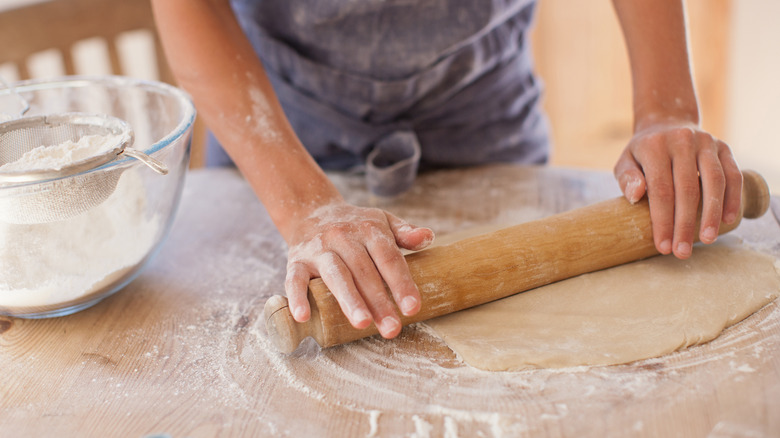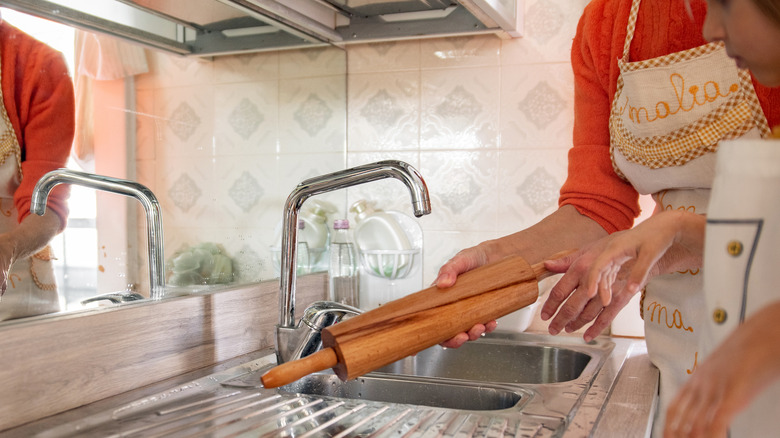The Best Way To Clean A Rolling Pin And Get Rid Of Sticky Residue
While it's a handy implement to have in the kitchen, a rolling pin can be a bit difficult to clean. Fortunately, there's an easy way to deal with any stuck-on dough and other types of food debris that may be fouling up your trusty kitchen tool. Simply hold the rolling pin on its end and run a bench scraper down the side of it. Typically used for handling dough, bench scrapers feature a plastic handle with a metal edge. This edge is highly effective for removing food debris but not so sharp that it will cause cuts or gouges to form in the wood.
To make the process a bit easier, hold the rolling pin at an angle as you scrape. That way, you'll have a better grip on it while you're moving the bench scraper downward. You can also rotate the pin to ensure all stuck-on food bits are removed. While it's good to have a plan for rigorous cleaning, regular cleaning is equally important to ensure the rolling pin lasts.
Basic rolling pin cleaning tips
Cleaning a rolling pin after every use can spare you some elbow grease in the kitchen. It can also expand the longevity of this vital kitchen tool. Take a slightly moistened cloth or towel and rub it all over the rolling pin. You can also use mild dish soap to clean the wood. After cleaning, be sure to dry the wood thoroughly with a fresh towel and store the rolling pin in a dry, cool place in the kitchen.
Along with dish soap, baking soda is another effective cleanser for rolling pins and other wooden kitchen tools. Take your baking soda and sprinkle some over the wood. Next, take a damp towel and rub it along the rolling pin. Baking soda is great for cleaning because it's mildly abrasive, but it's not so harsh that it will damage the wood. Now that you know the recommended cleaning strategies, you should also understand which practices to avoid.
What not to do with your rolling pin
While it might seem like soaking it in warm, soapy water is the best way to clean your rolling pin, it can actually have a detrimental effect. As the porous wood absorbs water, it faces a higher risk of cracking, which will then prevent you from rolling out dough smoothly. Similarly, wooden rolling pins should never be placed in a dishwasher. The combination of high temperatures and water can easily damage the wood.
In the event the rolling pin has already cracked, you may be able to salvage it. Conditioning a rolling pin entails adding oil to it and rubbing said oil into the wooden surface. In a pinch, you can use the olive oil already in your pantry. You can also use mineral oil; just be sure that it's food-safe so you don't inadvertently contaminate the kitchen tool. Conditioning a rolling pin with oil can also protect it from future damage while simultaneously allowing it to glide easily over dough instead of sticking.


